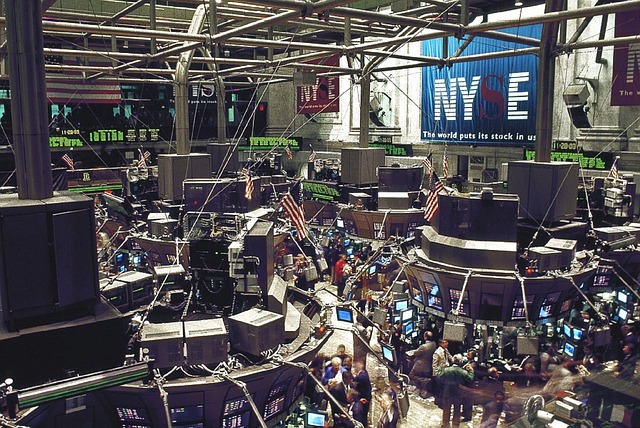Natixis IM: Questions amid a constructive backdrop
Natixis IM: Questions amid a constructive backdrop

By Esty Dwek, Head of Global Market Strategy
The year started where 2019 left off, with ongoing improvements in growth and buoyant markets. Equities took headlines in stride when the US killed an Iranian general with a drone strike and they have so far shown some resilience to the Wuhan flu outbreak. However, volatility has risen and it will remain elevated for some time. Indeed, for now it is impossible to know the extent of the virus or its economic impact beyond a sharp impact on Q1 data, particularly in China. For now we believe that the global backdrop remains supportive (once the outbreak is contained) and we maintain our constructive longer term outlook, though we have reduced risk.
A number of factors support this view. In our view, the most significant support remains the improvement in US-China trade relations. The “phase one “ deal was broader than anticipated and talks for a “phase two” are expected, suggesting much less risk of a re-escalation. This is comforting investors that global trade troughed at the end of 2019 and should lead to a rebound in the coming quarters – though the impact on trade from the outbreak is still unknown.
Economic data has continued to point to a moderate rebound in activity, though the Wuhan flu epidemic could stall the recent momentum. Until now, the global economy appeared to have turned a corner, even though data releases remain somewhat mixed, which is to be expected given we anticipated gradual improvement. The US economy should remain supported by a resilient consumer, a strong labour market and a rebound in the housing markets thanks to the Federal Reserve’s interest rate cuts. Europe should benefit from the US-China trade truce, though a trade dispute with the US cannot be excluded. We expect a significant impact on Q1 Chinese data due to the coronavirus outbreak, but beyond that, we expect a recovery in the more cyclical segments of the economy. That said, the ongoing structural slowdown suggests growth will not pick up in 2020, even without the effects of the Wuhan flu.
Finally, indefinite abundant liquidity and accommodative central banks will remain a significant support for risk assets. Major central banks have already stated they would remain accommodative, most likely on hold – unless we see a significant deterioration to spur a cut, a possibility this week at the Bank of England given a fragile UK economy.
With this backdrop, equity markets should continue to perform well, and we maintain our overweight allocation versus fixed income, though we have reduced our overweight in anticipation of short-term volatility. Valuations are not cheap, but they do not appear stretched and they remain cheaper than bonds on a relative basis. Earnings growth is expected to recover from 2019, around mid-to-high single digits.
Sovereign yields have dropped on Middle East tensions and Wuhan flu fears, but we believe that they will gradually resume their upward move, though we do not expect a sharp back-up. Indeed, growth is not expected to be stellar and risks remain: trade discussions between the UK and Europe, possibly between the US and Europe; the US elections; and ongoing US-China trade talks. As such, we believe that yields will remain capped, albeit higher than today.
Asset class details
Equities
Equity markets have proven rather resilient to January headlines, though the spread of the coronavirus finally impacted performance at the end of the month. We believe that the overall global backdrop remains constructive, with improvements in US-China trade and economic data releases, as well as ongoing central bank support. That said, we have reduced our allocations in anticipation of higher volatility in the coming weeks.
While the Q4 earnings season is showing mixed results, investors have already turned their attention to the 2020 earnings, where growth is expected to be in the mid-to-high single digits. We believe that US growth can beat expectations, which should support these expectations. Given rich valuations, we believe that decent earnings growth will be needed to lead markets higher. Indeed, while multiples can still expand, relatively high valuations may eventually act as a cap on performance.
We maintain our overweight to European assets for now. Over the medium term however, we believe that higher growth and earnings in the US will support the markets there. Emerging markets should continue to benefit from trade improvements, but could prove more vulnerable to the coronavirus fears.
Fixed Income
We expect sovereign yields to drift upward again once Wuhan flu fears recede, though this could take some time. Indeed, yields had already stabilised at lower levels ahead of the outbreak. Growth expectations have improved, but they remain rather unimpressive, and inflation expectations have only risen mildly, implying yields will likely be capped. We therefore do not expect a sharp move.
We maintain our preference for credit over sovereign debt, as sovereigns remain overvalued. After a 20 basis point drop, US 10-year yields currently sit around 1.61%, while 10-year German Bunds remain in negative territory, around -0.38%. Credit spreads have shown some resilience, though US high yield spreads widened more, as a result of the drop in oil prices. Over the coming months, we believe that IG should hold in better than HY given we are still advanced in the cycle and growth concerns are unlikely to vanish in the short term, but we see no systemic risk on lower ratings for now.
Despite idiosyncratic events, emerging market debt spreads have proven relatively resilient. We maintain a preference for hard currency corporates that offer attractive carry with low volatility, as shown by resilient spreads.
Currencies
Recent events have led to a resurgence in the US dollar, but we believe that it should remain contained as risk appetite recovers. The euro has suffered in return, as has GBP, where rising expectations for an interest rate cut by the Bank of England have weighed on the currency. We believe that both can recover, but expect broad range- trading, as we believe that higher growth and interest rates should maintain some underlying support for USD. Emerging market currencies continue to offer attractive carry, albeit with higher volatility and idiosyncratic risks.
Commodities
Oil prices collapsed on fears of the impact on Chinese and global growth – as well as travel – surrounding the Wuhan flu outbreak. Middle East tensions have taken a backseat but should see prices recover as worries recede. That being said, medium-term term supply is expected to remain ample thanks to shale production, which should cap prices.
Gold has been one of the main beneficiaries of the recent volatility and falling yields. We do not see much more upside, but acknowledge that the momentum is currently supportive.
Alternatives
We continue to see a place for alternatives in portfolios, as we look for de-correlating and diversifying strategies to complement traditional asset classes, particularly with liquid alternatives. We believe that real assets can also help provide income in a low yielding world.










